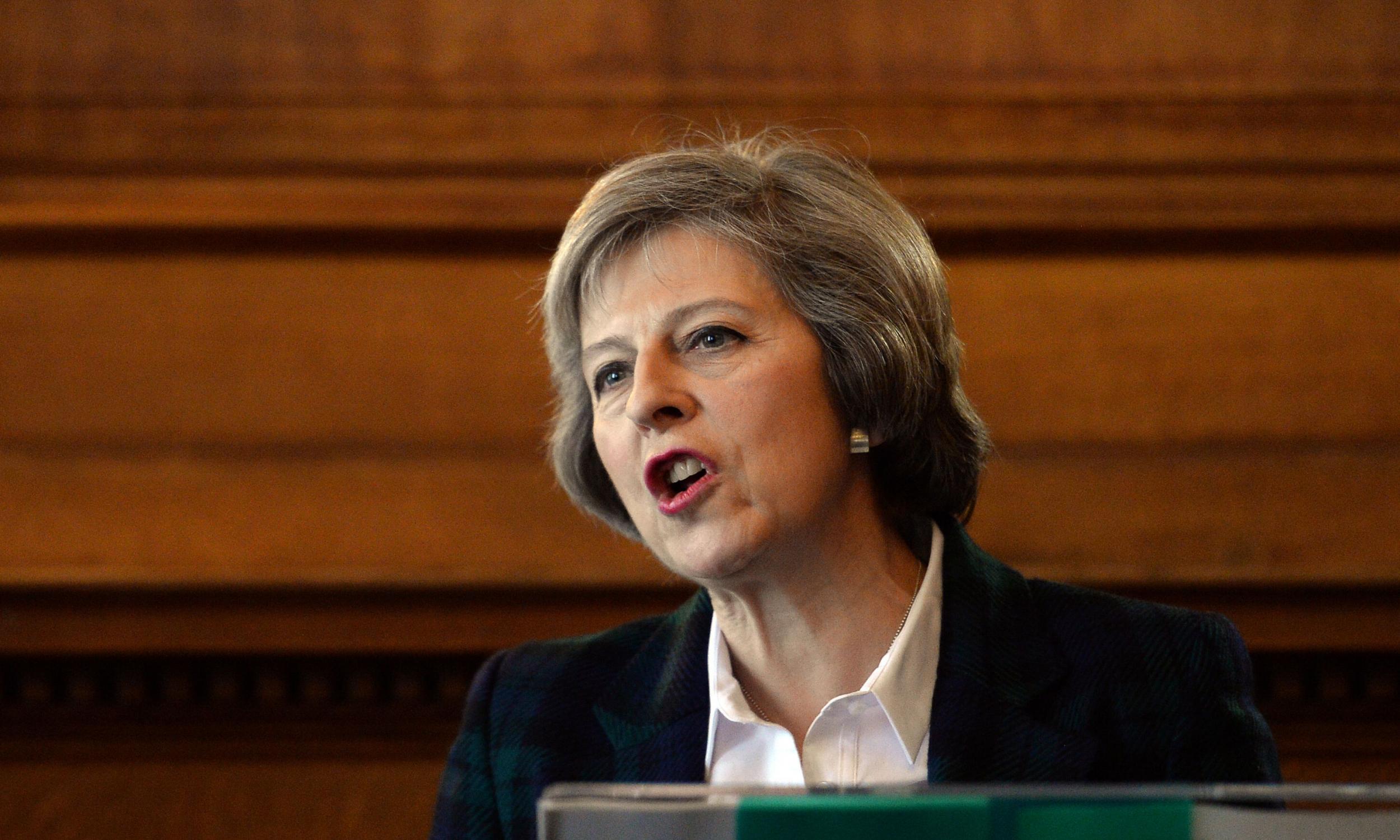Sketch: Theresa May gives a speech she hopes you will have already forgotten
Theresa May gave a speech on the EU Referendum that wasn't about the EU Referendum that she hopes you weren't listening to

Let’s get the important bit out of the way first. The Home Secretary wore a boring tartan two piece and a plain white shirt. “Sexism! Everyday sexism!” I hear you hashtag. “Just because she’s a woman blah blah blah.” But when Theresa May has got something to say that she wants people to hear, she tends to venture towards the more adventurous end of her sizeable wardrobe. There’s a Tory leadership contest coming, be it in the next few weeks or months or years, and today’s speech, in which one of the Conservatives’ more dedicated EU critics spelled out in not much detail why Britain is in fact better off remaining in anti-democratic hoc to our continental neighbours is not one she hopes will be remembered very long.
Wisely, she dedicated most of her keynote speech on the EU referendum to something that’s got absolutely nothing to do with the EU referendum. “The case for remaining a member of the European Convention on Human Rights is unclear,” she said, blaming it for “delaying for years the extradition of Abu Hamza, almost stopping the deportation of Abu Qatada, and telling Parliament that we could not deprive prisoners of the vote.”
The European Court of Human Rights, you will of course know, has nothing to do with the European Union. Britain is free to opt out of it any time it likes, though you will not find a human rights lawyer out there that thinks we should, but everyone knows a bit of generic Europe-bashing goes a long way to prepare the ground on these occasions.
Still Abu Hamza and Abu Qatada were both, in the end, deported and these are numbers that shouldn’t be ignored when it comes to immigration. There might be more than 300,000 coming in every year, three times Cameron’s ‘no ifs no buts’ promise in 2010, later revised down to ‘an aspiration’, but with Messrs Hamza and Qatada gone that’s two you can subtract from that number already. These are the successes Ms May is forced to cling to.
She took four questions at the end. They were all the same. Isn’t the huge number of people arriving perfectly legally every year from the European Union to work in the UK, and the pressure it puts on schools and hospitals and everything else the problem?
“The EU does not make it impossible to control the numbers [coming in],” she said. “We’ve been working to bring control. It’s absolutely right that people have concerns. We must bring control. We’ve been doing that for immigration outside the EU and we’ve now got some changes that give us control to the numbers inside.”
Those changes, by the way, refer to a ruling in Germany in 2014 on a Romanian woman’s entitlement to benefit when she had no intention of looking for work. These are not the matters that will placate the ire of men and women in Thanet and Clacton and Stoke-on-Trent, who very generously get angry about immigrants on behalf of the population that actually live near them and don’t object in the slightest.
Naturally, there was the economic case for remaining too.
“We are not in 1940,” she warned. “We are not in 1973...We are not in 1992...We are in 2016, and when we make this important decision, we need to look ahead to the challenges we will face in the next ten, twenty, thirty years and more.”
A wise argument, which was only slightly undermined around 90 seconds later, when she explained that we could not possibly leave because, “We export more to Ireland than we do to China, almost twice as much to Belgium as we do to India, and nearly three times as much to Sweden as we do to Brazil.”
If this is still the case in ten, twenty or thirty years, we really will be in trouble. Still at least this particular Tory leadership race will have been and gone by then, and momentous decisions of grave national importance might not be a proxy war for the career ambitions for a tiny number of entirely maladjusted people. Well, not these particular ones anyway.
Subscribe to Independent Premium to bookmark this article
Want to bookmark your favourite articles and stories to read or reference later? Start your Independent Premium subscription today.

Join our commenting forum
Join thought-provoking conversations, follow other Independent readers and see their replies